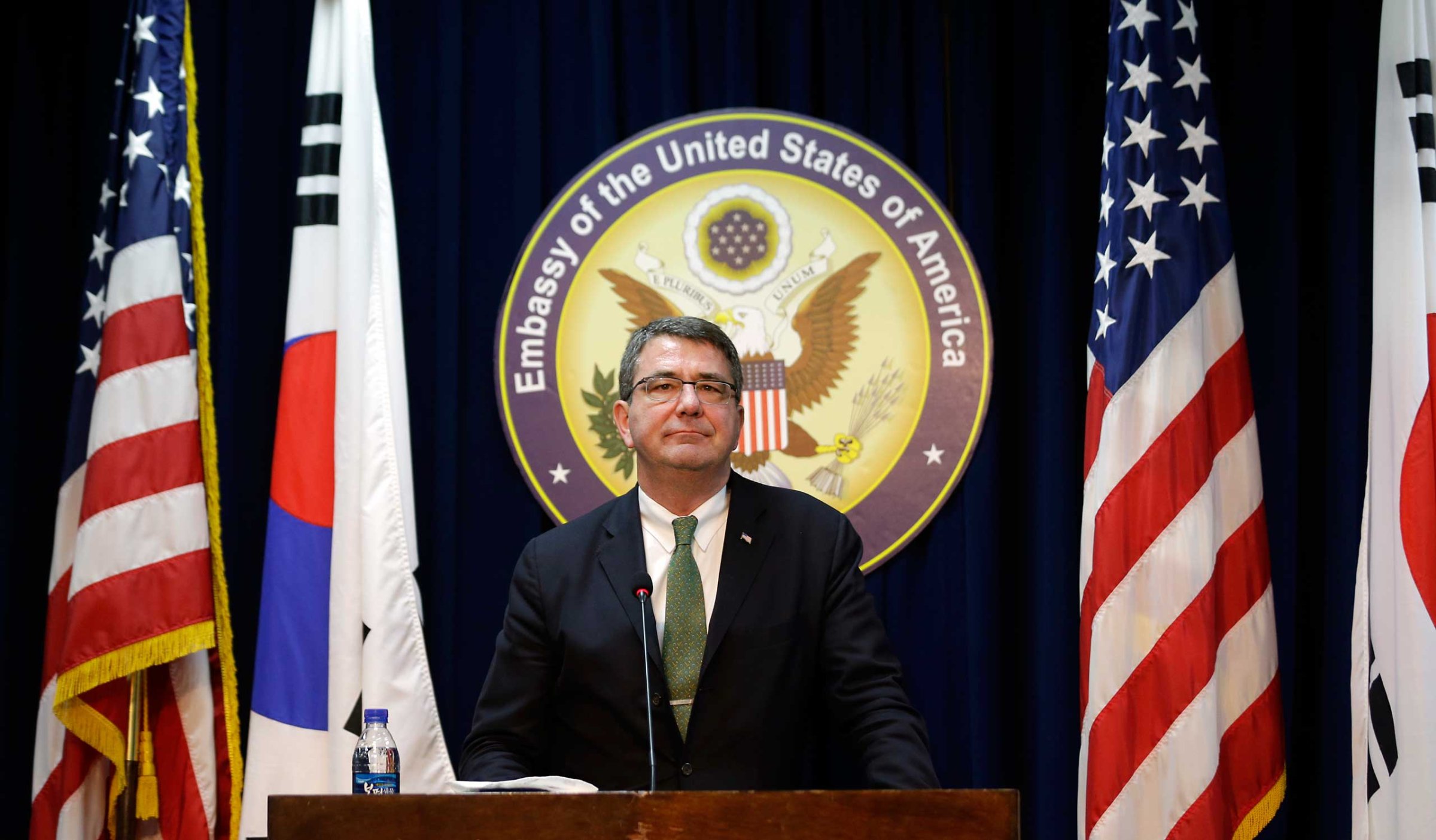
The Obama Administration knows what it is getting by preparing to nominate Ashton Carter to be its fourth defense secretary. More importantly, Ash Carter knows what he’d be getting into.
That’s because the whip-smart doctor of theoretical physics served in Obama’s Pentagon from 2009 to 2013 (as well as Clinton’s Pentagon, from 1993 to 1996, as assistant secretary for international security policy.)
He knows all about the commander-in-chief’s purported micromanagement—something that Robert Gates and Leon Panetta, Obama’s first two defense chiefs, complained about. He has apparently concluded it’s not as bad as they assert—or, even if it is, it’s something he can live with.
“Carter was a veteran of the department who had worked for and advised many secretaries, and was the rare leader who understood both the policy and budget sides of the agency,” Panetta wrote in his memoir, Worthy Fights, released in October. “He was a wonk, a nuclear physicist and author, but he’s also a compassionate commander who would slip out on weekends to visit wounded soldiers at Bethesda and Walter Reed.”
Carter is by far Obama’s safest, most predictable choice (sure, his nomination has to be confirmed by the Senate, but even with Republicans in charge beginning next month, that’s not going to be tough—after all, the Senate already confirmed him as deputy secretary).
Carter has been a professor at Harvard’s Kennedy School and an adviser to Goldman Sachs. Since September, Carter has worked at New York’s Markle Foundation, a tax-exempt charitable organization dedicated to improving national security, technology and health care.
Several leading contenders for the post to replace Chuck Hagel already have dropped out. Democratic Sen. Jack Reed of Rhode Island, a West Point graduate, said he wasn’t interested shortly after Hagel announced his departure. Reed will have to be content serving as the ranking Democrat on the Armed Services Committee (he would have become chairman, following the retirement of Carl Levin, but the GOP landslide last month dashed those hopes).
Michèle Flournoy, who served as the Pentagon’s No. 3 civilian official before leaving in 2012, also took herself out of the running last week. While she cited family concerns, she plainly would prefer to run the Pentagon under President Hillary Clinton. That’d make her the first woman to run the Defense Department, and under a female commander-in-chief, to boot.
Carter’s 2011-2013 background as the Pentagon’s No. 2 civilian, largely responsible for the building’s day-to-day management, primes him for the military’s tough budget environment. He’s also an expert on nuclear weapons and military technology, having served as the Defense Department’s top weapons buyer from 2009 to 2011.
Carter is a graduate of Yale—bachelor’s degrees in physics and medieval history—and Oxford, where he earned his Ph.D. in theoretical physics. In 2006, while at Harvard, Carter and his mentor, former defense secretary William Perry, urged President George W. Bush to threaten to destroy North Korean missiles that might be outfitted with nuclear warheads.
Unlike Hagel—who served as an Army sergeant in Vietnam and was wounded twice—Carter has never worn a U.S. military uniform. And, also unlike Hagel—twice elected as a Republican senator from Nebraska—Carter hasn’t engaged in partisan politics.
Of course, given Hagel’s vague tenure and unceremonious dumping from his Pentagon post, the value such experience affords may be dubious.
More Must-Reads from TIME
- Why Trump’s Message Worked on Latino Men
- What Trump’s Win Could Mean for Housing
- The 100 Must-Read Books of 2024
- Sleep Doctors Share the 1 Tip That’s Changed Their Lives
- Column: Let’s Bring Back Romance
- What It’s Like to Have Long COVID As a Kid
- FX’s Say Nothing Is the Must-Watch Political Thriller of 2024
- Merle Bombardieri Is Helping People Make the Baby Decision
Contact us at letters@time.com